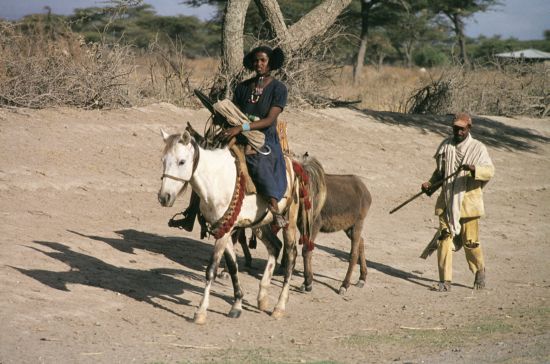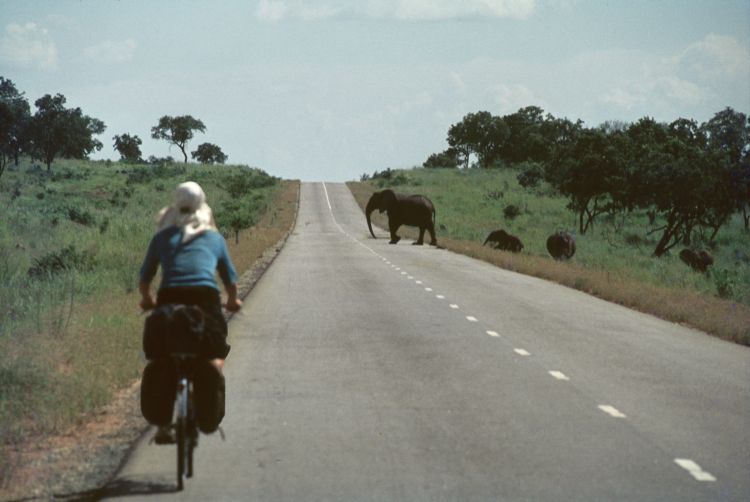| Barelds - Cycling around the world - Cycle stories - Asia, Africa, Europe, America | ||||||||||||||||||||
| home | site map | world | children | recent | cooking | dutch | german | react | ||||||||||||
Eastern and Southern Africa 1973 (4).

Ethiopia: Practically no traffic, everybody walked except a few "rich" people on horseback and with a servant walking beside her.
Into a panic we had already sent a telegram to our home for tyres and canvas. And then all these broken spokes, each evening sometimes by light of the paraffin lamp because of the long day trips, Henny sat there repairing the bicycles.
"We never give visa for longer than 15 days", said the policeman, but we persisted and then at last we saw the head inspector.
"To Kenya by bicycle" he said in disbelieve and although bicycles are practically unknown here, he showed appreciation and understanding. "All right, 24 days" he said, "can you manage that?" and he wrote this in he passports.
A nice resting place we had found under a few large shady trees by the river Awash. The primus stove was whirring snugly to make tea and one "bani" after the other disappeared in our hungry stomachs. With a lot of sneezing and sniffing the heads of the hippo's came regularly above the water to take some breath and on the other side lay, a sleepy crocodile with his beak open wide in the hot sun. After we had rested some time we continued our way over the unpaved road that was winding along the river. Suddenly, a crocodile jumped into the water with a loud splash, so they were also lying on our side of the river!
The path ended in an irrigated valley, covered with vast sugar cane fields. A sugar factory milled, steamed and spewed out the sugar: in bags of 25 grams, the poor populations could pay not more than one bag a time. The remainder, the molasses, was used to pave the local roads with. A sticky asphalt road on a hot day was nothing compared to this.
S
hall I hold your bicycle, madam?" said a deep voice, "you must be tired".
I looked straight at a black belly button and above it a broad chest covered with frizzy hair, and above it towered the friendly face of the soldier. We were surrounded by giant negroes, garrisoned in a camp in the North-Kenyan desert. Thanks to this camp, plus a settlement of road workers, a lonely mission post, and a police station, we could bridge these 500 km of nothing.The last days in Ethiopia the habitation had already increasingly become scarce, as did the vegetation which became increasingly withered, dryer and thornier. There was no shade against the burning sun, we rested under a quickly put up outer tent. We encountered some nomads, roaming with herds of camels, laden with their poor belongings, constantly in search of water. Every now and then a lonely warrior, his lance on his neck. Along a sandy road we ploughed on together and saw two warriors of the Samburu tribe walking in front of us, in a lively conversation. As if attacked by a lion they suddenly jumped into the thicket, when they heard the first cracks of our bicycles. Laughing they emerged again, stretched out their hands "do you have sweets for us"

Tanzania: Nelly felt reasonably safe with the elephants, although I warned her that I could not scare away that one!
| Start World around | South America | << Previous | Next page >> | |||
| Barelds on bicycle through the world - Cycling in Asia, Europe, Africa, America | ||||||